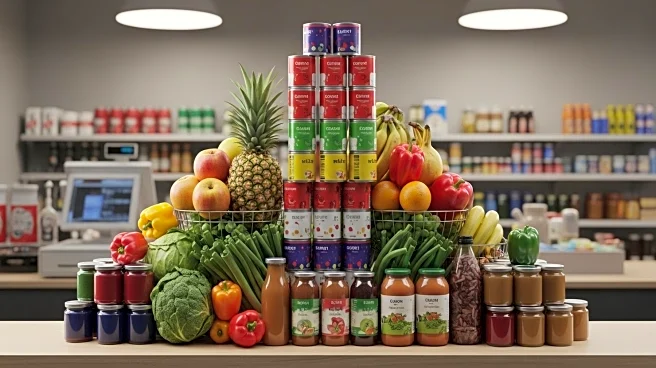What is the story about?
What's Happening?
The National Association of Convenience Stores (NACS), National Grocers Association (NGA), and Food Industry Association (FMI) have released a study warning that proposed restrictions to the Supplemental Nutrition Assistance Program (SNAP) could impose significant costs on food retailers. The SNAP Restrictions Impact Analysis estimates that convenience stores alone could face $1 billion in upfront costs to comply with new regulations. These costs stem from necessary upgrades to technology, software, and point-of-sale systems, as well as labor for compliance with new stocking and labeling requirements. The study also highlights ongoing annual compliance costs, which could total $378.6 million for convenience stores. The associations are urging the U.S. Department of Agriculture (USDA) to extend the timeline for implementing these restrictions and provide clear definitions of restricted foods.
Why It's Important?
The proposed SNAP restrictions could have a substantial impact on the convenience store industry, potentially affecting their profitability and operational efficiency. With the estimated costs representing a significant portion of net income, retailers may face financial strain, which could lead to higher prices for consumers. The changes could also affect SNAP participants, as retailers might struggle to adapt quickly, potentially leading to reduced access to certain food items. The broader economic implications include potential job losses and reduced consumer spending in affected areas, highlighting the need for careful consideration and planning in implementing these changes.
What's Next?
The USDA is being asked to extend the timeline for implementing SNAP restrictions to allow retailers adequate time to adapt. Clear guidance on restricted foods is also being requested to ensure compliance without ambiguity. The ongoing government shutdown adds uncertainty to the situation, as SNAP benefits could be affected if the shutdown continues. The USDA may need to use contingency reserve funding to cover SNAP costs, but the availability and decision to use these funds remain unclear.
Beyond the Headlines
The SNAP restrictions raise ethical and social questions about the balance between improving public health and imposing financial burdens on retailers. The potential for increased food insecurity among SNAP participants and the impact on small and independent retailers are critical considerations. The situation underscores the need for transparent communication and collaboration between government agencies and industry stakeholders to mitigate negative consequences.
















